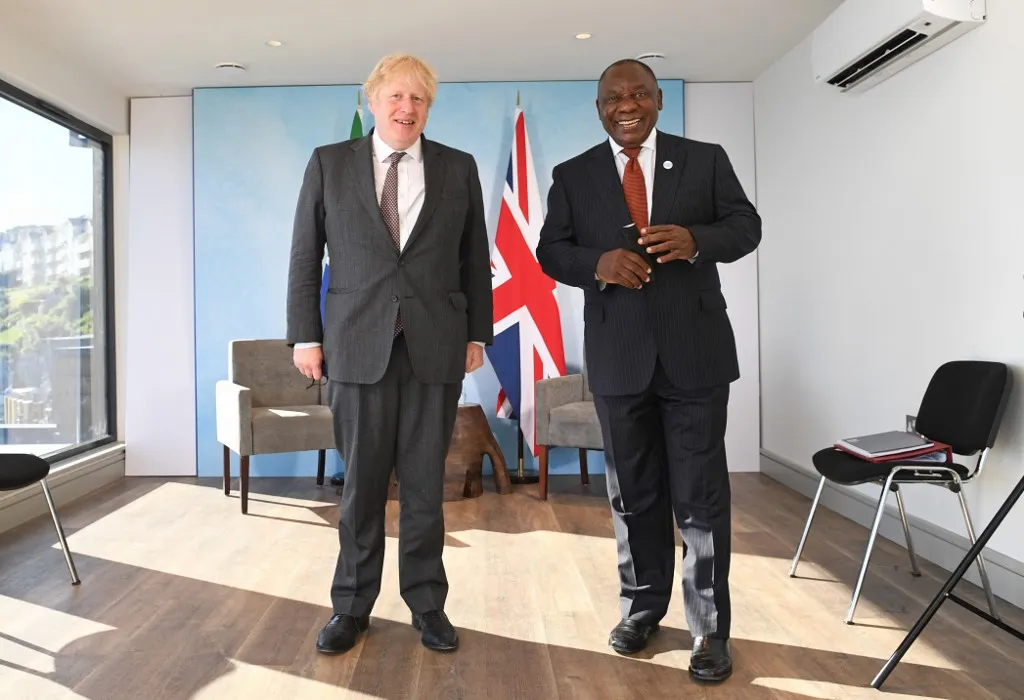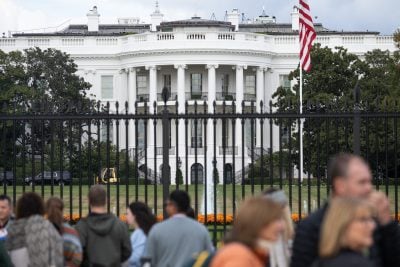Boris Johnson kicked off the 2022 Africa Investment Conference on 20 January, promising that British business would help Africa to prosper from the green industrial revolution.
The UK Prime Minister said humanity can aid its rescue from catastrophic climate change, if Africa partners with the UK in its ‘Clean Green Initiative,’ announced during last November’s COP26 Glasgow gathering.
The UK has committed £11.6bn of its International Climate Finance fund to help developing countries respond to climate change over the next five years.
“We want to support African countries that are already suffering the effects of climate change, and one export guarantee from the British Government will allow 87 emergency bridges made in Gloucestershire to be used to strengthen flood defences in Ghana,” Boris Johnson told the conference held to promote trade between the UK and Africa.
Around 4,000 virtual participants at the one-day conference witnessed the launch of a new online “Growth Gateway” by Anne-Marie Trevelyan, the UK’s international trade secretary.
The new digital tool links British and African businesses to “UK Government trade, finance and investment services and opportunities,” Trevelyan said.
The Growth Gateway aims to streamline information on finance, trade and investment for businesses trading between the UK and Africa, with a 20-strong online team of trade and investment specialists.
The inaugural UK-Africa summit in 2020 facilitated 27 trade and investment deals worth over £15bn, and this year’s conference looks set to unite businesses in clean growth initiatives, and a myriad of trade partnerships.
As well as 87 bridges delivered to Ghana – following a £42 million guarantee by the UK Export Finance (UKEF) – British battery technology firm Aceleron, recently secured investment from a subsidiary of Toyota Group, to accelerate the development and use of sustainable batteries in Africa, as part of a repair and reuse circular technology drive on the continent.
The UKEF has also pledged £120m to modernise Ghana’s Kumasi Market, the largest in Africa, with over 800,000 visitors each day.
Projects for road construction, industrial equipment supplies, and a pledge to build hospitals in Ghana and Côte d’Ivoire, followed recent trade and economic partnerships signed with the UK.
“To date, we’ve signed nine trade agreements covering 17 African nations and bilateral trade was worth over £26bn in 2020,” Trevelyan told African Business Magazine.
“We are committed to continuing to promote trade with Africa as a generator of business opportunities, contributing to the growth of sustainable, resilient and productive economies across the continent.”
UK investment ‘unsustainable’
With further trade deals expected to be announced with African countries post-Brexit, Leah Lynch, the deputy director of Development Reimagined calls for Boris Johnson’s government to open market access to a variety of value added African products.
Out of Africa’s 55 countries, only 13 have a trade surplus with the UK, with the majority of African nations exporting raw, unprocessed goods, such as crude oil, metals, minerals and food to Britain.
The UK maintained a trade surplus in 2020 of £2.5bn, and it is the second largest G7 investor into Africa.
“Africa accounts for a tiny 3% of the UK’s imports, while the largest share of UK investment in Africa goes into extractives and mining (43%) with very little (1%) into manufacturing. This is very unsustainable, and hardly in line with Africa’s growth ambitions. And it means the announcements made yesterday have not yet tackled the shift required,” said Leah Lynch.
Instead of signing further bilateral trade agreements, the UK should focus its African economic initiatives on building a trade agreement with the African Continental Free Trade Area (AfCFTA), says Lynch.
Commencing in January 2021, the AfCFTA has the potential to make Africa more attractive for external investors, and encourage an influx of Foreign Direct Investment (FDI). Its rollout is anticipated to raise basic incomes and develop a consumer base on the continent.
Eliminating trade barriers and growing its market size will also encourage UK foreign investment, provided British policymakers help to address the bottlenecks to the free movement of goods and human capital between Africa and the UK, analysts say.
“Now that the UK is not part of the EU, it has the potential to do this, but unfortunately because the Government is so focused on UK business needs, the focus of yesterday’s summit was more on increasing British exports to Africa, potentially widening the existing trade deficits that exist with 42 out of the 55 African countries,” says Lynch.
Want to continue reading? Subscribe today.
You've read all your free articles for this month! Subscribe now to enjoy full access to our content.
Digital Monthly
£8.00 / month
Receive full unlimited access to our articles, opinions, podcasts and more.
Digital Yearly
£70.00 / year
Our best value offer - save £26 and gain access to all of our digital content for an entire year!
 Sign in with Google
Sign in with Google 



